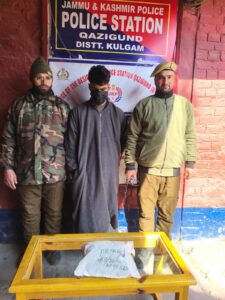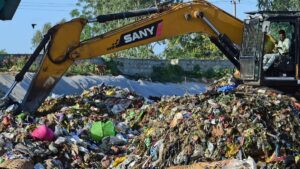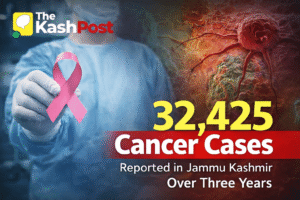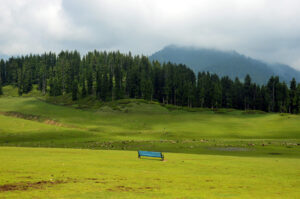Pakistan elects Maryam Nawaz as first female chief minister

The election of Nawaz represents a big step for female politicians in Pakistan’s patriarchal society. However, critics say her position is a continuation of the Nawaz political dynasty.
Maryam Nawaz, the daughter of former Pakistani prime minister Nawaz Sharif, has become the first female chief minister of Punjab, the country’s most populous province.
Her election to Punjab’s highest political office is being hailed by women’s rights activists and female politicians as a big step for women’s empowerment in patriarchal Pakistan.
Nawaz was elected Monday during Punjab’s assembly session, defeating Rana Aftab, a candidate backed by former Prime Minister Imran Khan’s Pakistan Tehreek-e-Insaf (PTI) party. Her appointment was widely expected, as her Pakistan Muslim League party (PML-N) party emerged as a the largest in the Punjab assembly following national elections on February 8.
She said after the decision that her appointment is an “honor” for every woman in Pakistan, and “being a woman, a daughter, will not come in the way of your dreams.”
Mehnaz Rehman, a women rights activist, told DW that Nawaz’s appointment is a symbolic boost for the the status of women in Pakistan. However, there will likely be limitations as to how far she can push women’s rights issues.
“She will be part of the same system and it needs to be seen how she navigates through this. I hope that she will use her position to protect women’s rights and ensure their empowerment,” Rehman said.
What challenges will Nawaz face?
Punjab is one of Pakistan’s most religiously conservative provinces, where women do not have equal rights.
Zohra Yusuf, a former chairperson of the Human Rights Commission of Pakistan, told DW controlling extremist elements in the province will be a big challenge for Nawaz.
“Controlling extremists in Punjab will be difficult because most politicians try to appease them by being silent” when crimes are committed against women and minorities, she said.
Yusuf fears that Nawaz will also be targeted because of her gender.
“When former prime minister Benazir Bhutto entered into politics, she faced malicious campaigns and her gender was especially targeted,” Yusuf said. Nawaz “will definitely face sexist remarks and taunting of dynastic politics,” she added.
A liberal secularist, Benazir Bhutto was the first woman to lead a democratic government in a Muslim-majority country. She was assassinated in 2007.
Maryam Nawaz part of Pakistan’s dynastic politics
Nawaz is part of the prominent Pakistani Sharif business and political dynasty. She is the eldest daughter of former Pakistani Nawaz Sharif and niece of Shehbaz Sharif, who is set to become prime minister for the second time, heading a coalition government following recent national elections.
Nawaz’s detractors believe that her appointment is part of the Sharif dynasty seeking to continue their grip on Pakistan’s political levers.
Habib Akram, a Lahore-based analyst, told DW he believes that 50-year-old Nawaz is not qualified to be chief minister, except for the fact that she is the daughter of Nawaz Sharif.
“I don’t think she can bring any real change to the lives of people in Punjab,” Akram told DW.
“Her election is a triumph for dynastic politics.”
He fears that she might intensify crackdown against Khan’s PTI party. “She has already used very derogatory remarks against Khan, indicating that she will not change her attitude towards Khan’s party, intensifying a crackdown against his workers.”
Candidates from Khan’s PTI party were barred from running under the party banner in the election, and supporters say the election was rigged against them in a widespread crackdown.
However, the PML-N has dismissed criticism of Nawaz’s appointment.
Nehal Hashmi, a former PML-N senator, told DW that Nawaz earned her position in power. “She went to jail, faced concocted cases and endured torture but refused to bow down to powerful elements of the state.”
In 2018, Nawaz was arrested on corruption charges just before national elections. She was jailed for several months, along with her father, Nawaz Sharif, who was released on medical grounds and fled to the UK, and lived in exile before returning to Pakistan in 2023.
“She will focus on governance, investing her energies in improving the lives of common man instead of resorting to political vindictiveness,” said Hashmi.





